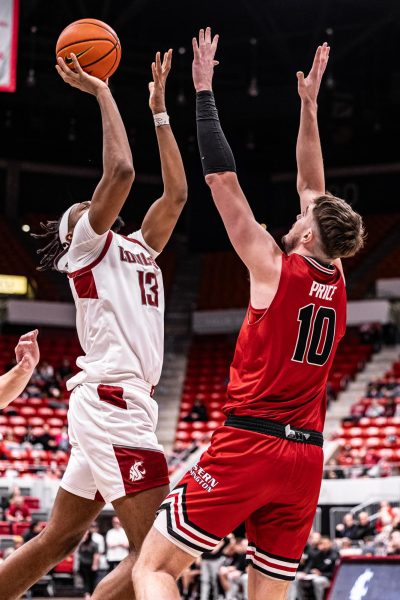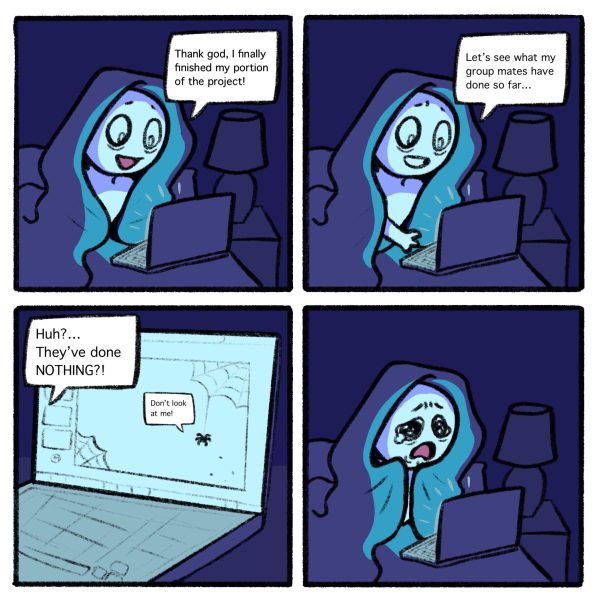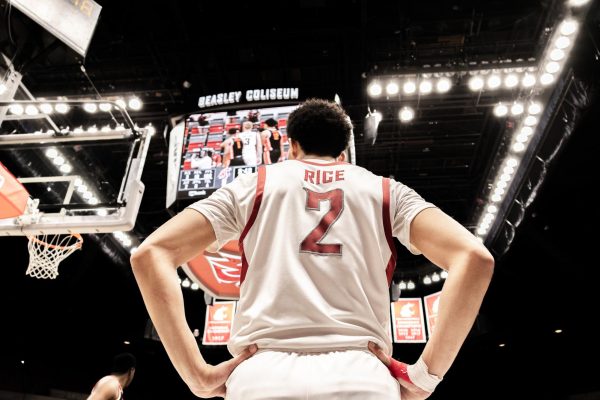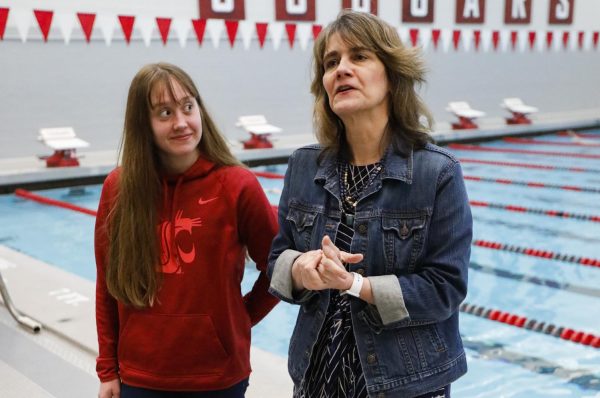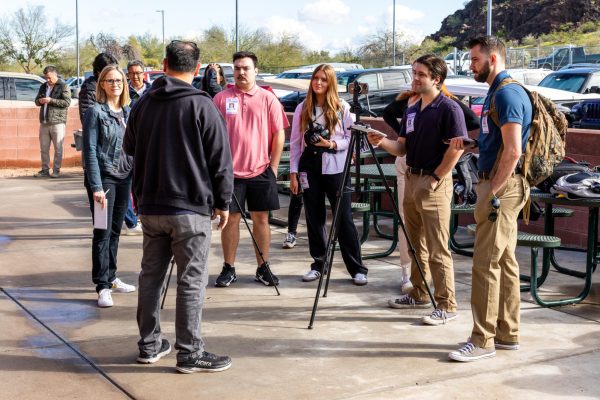Help: a call away
April 21, 2016
The phone rings late at night and a woman awakes with a start to answer it.
“Alternatives to violence and crime victim’s services, how can I help?” she asks.
The conversation could go in a thousand different directions from there.
The call may last several minutes or hours. The caller might not give their name or any identifying information.
There is no formula or road map that the volunteer uses to guide the conversation. She or he tries to gauge where the caller is emotionally through a series of questions. Each question is gently proposed.
Sometimes one question is all it takes for the caller to open up, for others it takes much more. Some may never get to that point. Sometimes the caller hangs up in a better position, validated in their fears and experiences by the volunteer who answered the phone. But that is not always the case.
The volunteer will take anywhere between three and five calls per night, although there are some nights where the phone rings almost continuously.
No matter the number of callers, the hotline system works to turn the call over to the next available line so no one is ever sent to voice mail.
The 24 hour, free and confidential Alternatives to Violence of the Palouse (ATVP) hotline was called 4,067 times between July 1, 2014, and June 30, 2015, a total of 6,808 hours.
Of the thousands of calls received, there are some that stick with volunteers more than others, ATVP Associate Director Emilie McLarnan said.
“For me, it is when the calls where the caller says something like, ‘I’m so glad to know that I’m not crazy. I’m so glad there is something out there and I’m not crazy and I’m not alone,’” McLarnan said. “And you get that theme throughout lots of different calls. For me it is just when that person feels that validation. They are validated in their concerns and their fears and they can realize that it’s not their fault, that they aren’t crazy and this is something that happens to other people.”
Despite the anonymity a phone call provides, or possibly because of it, survivors are able to connect with someone whose purpose is to listen.
The focus of each call is to figure out what the caller needs. The variation in the caller’s age, circumstances or background fades against the specific and pointed validation of whatever the caller may be feeling or experiencing.
Be it fear, suicidal thoughts or just an innate desire for another human being’s acknowledgment of their feelings, the conversation on the caller’s terms is the core of the hotline.
“They just want to talk and have someone be willing to listen to them,” said Calista Currie, volunteer, intern lead and shelter staff at ATVP.
Unlike the common image of a hotline being run out of a large, open room with many phones and people sitting at desks with headsets on, the ATVP hotline is a cellphone that the volunteers take with them when the ATVP offices close.
From 4:30 p.m. until the next morning, the volunteers sleep with the phone at their bedside.
The volunteers
Currie graduated from WSU in May 2015 with a degree in psychology and criminal justice. She spent most of her undergraduate career volunteering at ATVP.
She began as a volunteer on the hotline in the fall of 2013 and worked her way up to intern to paid intern and finally to her current position. She emphasized the importance of making a difference in the community.
“I have been very interested in the field,” Currie said. “It has always been something I have been passionate about and something I’ve always been interested in. I also wanted to help the community in some way. As soon as I found out about ATVP, I was like, ‘Yup, sign me up!’ I didn’t even need to think twice about it.”
Three years have gone by since she began as a volunteer, attending the 42.5 hours of required training over two weeks all incoming volunteers take to prepare for the unique challenges of the hotline.
Currie has listened to hundreds of survivors’ stories, offering references and support to survivors. She refuses to be disheartened by the violence. Her language revolved around the good that the hotline does for the community, the awareness ATVP brings and the progress being made.
“There are going to be the difficult situations that you encounter, there are going to be those few bad days that are difficult situations to really handle,” Currie said. “I try to focus on the great things that I am doing to help change the community to really balance out those difficult things so they don’t really affect me that much.”
The emotional toll is unavoidable, but she tries her best to leave work at work – dedicating time to self-care to combat stresses of the job.
“Sometimes the hotline volunteers don’t know what the outcome is for someone they talked to because their role is not necessarily that on-going piece so we talk a lot about debriefing and about the strength of the individuals who call us,” McLarnan said. “People survive a long time before they ever reached out to us. We have to trust in their abilities as well. When you hang up that phone it can feel very hard to do.”
McLarnan worked on the hotline for 15 years throughout her career. She knows first-hand the volunteers’ stress levels.
The group of 20 volunteers meets once a week to debrief and talk about any difficulties they may be having. Of the group, 95 percent are students from both WSU and the University of Idaho. Four are males.
They are reminded that while they cannot fix everything, they are helping the community every time they answer the phone.
“Domestic violence and sexual assault are such pervasive issues that usually as a team we support each other and we do a good job of focusing on the positive impact that we’ve made but it also does just sometimes get to you after a while,” McLarnan said.
Despite the emotional ramifications of the work, Currie has an unshakable optimism and ability to acknowledge the gravity of the issues she deals with on a regular basis while retaining a smile at the end of the day.
Her least favorite part of the job has nothing to do with the emotional weight. She laughs readily as she admits she just hates the paperwork.
The stigmas, the hotline and the slow march to change
According to the Sexual Violence Resource Center, one in five women and one in 71 men will be raped at some point in their lives. One in five women and one in 16 men will be sexually assaulted in college. More than 90 percent of sexual assault victims on college campuses do not report the assault. Rape is the most under-reported crime in the country. In eight out of 10 rape cases, the survivor knew the rapist.
The statistics are vaguely familiar to most college students. For the volunteers at ATVP, those statistics have voices: people being hurt. Frustration with the prevalence of sexual violence festers often.
“This is such a pervasive problem and we are still dealing with this. We are still helping people with these problems because they are still going on … change can be slow so we are doing an increasingly good job of reaching out to the community,” McLarnan said. “We want to support everyone who needs our support and we want people to not be getting abused anymore. So for me that can get a little difficult some days. Just knowing the scope of the problem or having an idea of the scope of the problem and feeling like, ‘Are we there yet? Are we there yet?’ I mean this is a pretty young social movement – 40 years old or so – and change takes time but we see the human toll. We are supporting people who have been hurt by people they love and it’s like, enough already.”
The challenges of coming face-to-face with the pain caused by the prevalence of sexual violence are combated by the work that is done.
For survivors in college, that means help through a student conduct process, a bed at a local shelter if they do not feel safe at home, assistance with safety planning, referrals to WSU Violence Prevention and WSU Counseling and Psychological services, and an ally outside of the school regardless of whether or not the survivor wants to press charges or file a report with the Student Conduct Board.
ATVP volunteers are well-versed in the procedures of both colleges in the area and have contacts to reach out to upon request. The surrounding hospitals, colleges and police departments have a written set of protocols outlining how to contact ATVP for advocate services, and while a survivor will get an advocate immediately if they ask for one; there is no law that mandates obtaining one before proceeding.
Being imbedded in the cases of many student survivors also means watching the sometimes frustrating justice process unfold.
“You are sharing their journey,” McLarnan said. “It is their journey, it is their process but we are there with them. We feel the frustration as well but we handle it in a professional manner by making follow-up calls for the client because they may feel just so fried and they’ve got exams and they’ve got work and they’ve got this and that … We try to channel our frustrations into forward momentum.”
The frustrations with the justice system are only half the battle.
The cultural stigmas surrounding sexual assault and domestic violence are still heavily ingrained. Victim blaming is so ubiquitous it seeps into many of the survivors consciousness and manifests in self-blame.
The ATVP hotline volunteers are taught how to empower a survivor to stop blaming themselves. During training, volunteers read and talk about ways to combat victim blaming.
“It can be really simple like, ‘You don’t deserve this, no one deserves this,’ ‘You did not ask for this,’ ‘This is not your fault,’” McLarnan said. “And just reaffirming with people that you did not choose this. This is not your fault.”
The empowerment model the volunteers use allows the survivor to fight stigmas they find themselves coping with.
It is difficult to unravel culture’s tight grip on survivors, but the support groups ATVP staff members facilitate between survivors acts as a safe place to be around people who have experienced similar horrors.
The survivors are the livelihood of the volunteers, but educating the community as a whole about not only the issues but about the human toll behind the statistics, through workshops and speeches.
“We are always trying to help people understand that the only person to blame for a rape is the person who committed it, that rapist,” McLarnan said. “We talk about domestic violence and that it is a choice made by the abuser… It is about power, it is about control. You should not be ashamed of yourself because the other person chose to act that way.”
Shifting the conversation from the survivor to the perpetrator is the subject of a national campaign called Start by Believing. The hotline volunteers are on the front lines, offering a listening ear and absolute belief in the caller and their emotions, and the conversation carries to the community.
According to the statistics, most people know a survivor whether they are aware of it or not, though the cultural conversation tends to center on victim blaming.
“Rather than starting out by saying, ‘What were you wearing? What were you doing? Why did you act that way? How did you bring this upon yourself?’ because that is often where we start out when people are talking about survivors,” McLarnan said. “Start by believing that person and that is the beginning of the support that can really be powerful.”
This is the mission of the hotline: provide a 24-hour resource who will believe and support the caller in whatever they want to do.
That belief, support and empowerment is the cornerstone of ATVP, which serves the community at large by facilitating cultural shifts.
The phone rings late as the bedside clock flashes. It is 3 a.m.
“Alternatives to violence and criminal victim’s services, what brought you to the hotline tonight?”









